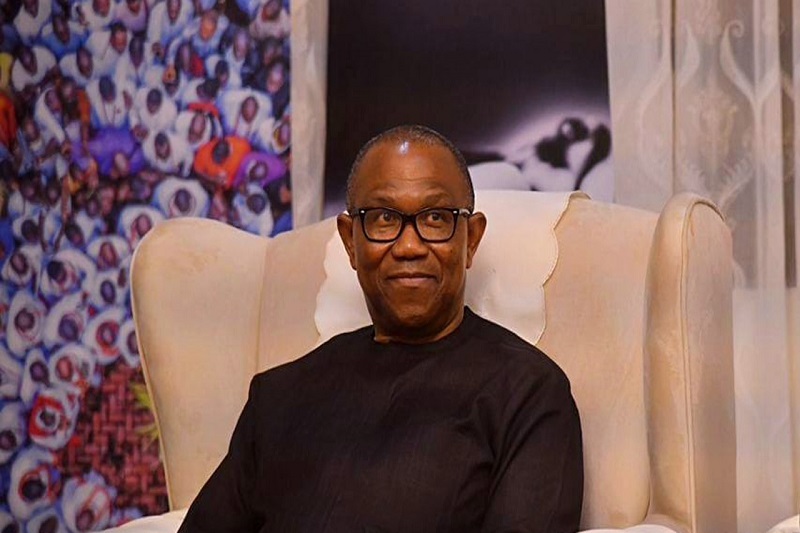According to the provisional results that were published by the Electoral Commission on Monday, the non-party candidate for the presidency of Nigeria, Peter Obi, has won the most votes in the key state of Lagos, narrowly beating the candidate for the party that is currently in power in his home base. There are three strong candidates for president in this election, and one of the top vote-getters is the economic capital of Africa’s most populous country. State-by-state results are only now being announced, but the race is expected to be close. The Labour Party (LP) candidate, Peter Obi, got 582,454 votes, which is almost 43% of all the votes cast in Lagos.
On Saturday, more than 87 million voters cast their ballots to choose from 18 candidates the person who will have the difficult task of turning around Nigeria for the next four years. Nigeria has a slow economy, a lot of violence from armed groups and bandits, and a lot of people living in poverty. The person who wins this election will have the difficult task of turning around Nigeria. Bola Tinubu, 70, is running for president as a candidate for the All Progressives Congress (APC). His stronghold is the busy economic capital, which he ran from 1999 to 2007. More than seven million people are registered to vote there, which is more than anywhere else in the country.
The National Electoral Commission (INEC) says that Mr. Obi has a small lead over his main opponent based on the early results. With 46% of the vote in Lagos, less than 10,000 votes separate Mr. Obi and his primary opponent. Tinubu is known as the “godfather” in politics because of how powerful he is. After violence broke out in Lagos on Monday, he released a statement in which he admitted defeat and asked for peace. You can win some games and lose others. “We must enable the process to continue unhindered in the country.”
Related Posts
Idayat Hassan, director of the Center for Democracy and Development (CDD) in Abuja, made the following observation about Mr. Obi’s victory: “This is an important victory, because Tinubu is at home in Lagos; he is considered the owner,” she said. “The 2023 election is redefining the political machine in Nigeria.” The Labour Party (LP) candidate, who is very popular with some of the younger people in the country, has been able to establish himself as a credible opponent to the two parties (APC and PDP) that have run Nigeria for over 20 years. In addition, the country may hold a presidential election over the course of two rounds for the very first time since it returned to democratic rule in 1999.
This election is very important because Nigeria, which has 216 million people now, is expected to have the third-most people in the world by 2050, while West Africa is threatened by a sharp drop in democracy and the spread of jihadist violence. Consequently, the outcome of this election is very important.
Afrobeats, a musical genre that is lighting up the world with stars like Burna Boy, are largely responsible for the transformation of the country with the biggest economy on the African continent into a global cultural powerhouse. But many Nigerians are calling for “change” because their daily lives are so hard. Recent shortages have only made things worse. They are disgusted by decades of bad leadership and a group of old people who are known for being corrupt.
For Obi, a 61-year-old Christian and former governor of Anambra in the southeast, the game is far from over. This is especially true in the north of the country, where there are a lot of people and both Bola Tinubu and the Muslim candidate for the PDP, Atiku Abubakar, have a lot of support. Obi’s opponent, Atiku Abubakar, is running on the platform of the People’s Democratic Party (PDP). In Nigeria, where there are more than 250 different ethnic groups and where Islam is more common in the north and Christianity is more common in the south, the community vote is very important.
To be elected in the first round, the winner must get a majority of the votes cast and at least 25% of the votes in at least two-thirds of the 36 states that make up the federation, plus the territory of Abuja. If this is not the case, a second round should be held within 21 days. As of Monday at noon, only Ekiti (APC), Osun (PDP), Ondo (APC), and Kwara had official results from the National Electoral Commission (INEC) in Abuja. The announcement of the complete results will take some time (APC).
Even though there were some security breaches and other problems that caused delays, Saturday’s vote went off without a hitch. Votes were sometimes counted late into the night, and many voters stayed at the polling place to “protect” their votes. But the electronic transfer of results, which was being tried out for the first time on a national level, made the voting process more complicated. The majority of the agents tasked with uploading the results from the 176,000 polling stations to an INEC platform were unable to do so.This was a first for the country.
Also Read:- Who is Lanre Shittu? Cause of death, net worth & more
In a country where allegations of voter fraud have marred each of the country’s previous elections, the new system was put in place to increase the election’s level of transparency and to reinstate voters’ faith in the electoral process. Only 30% of the results were uploaded to the Inec platform. There were “technical problems,” but users were assured that the results were “safe” and couldn’t be “faked.” However, allegations of manipulation as well as attacks on the collection centers have already begun to circulate.

